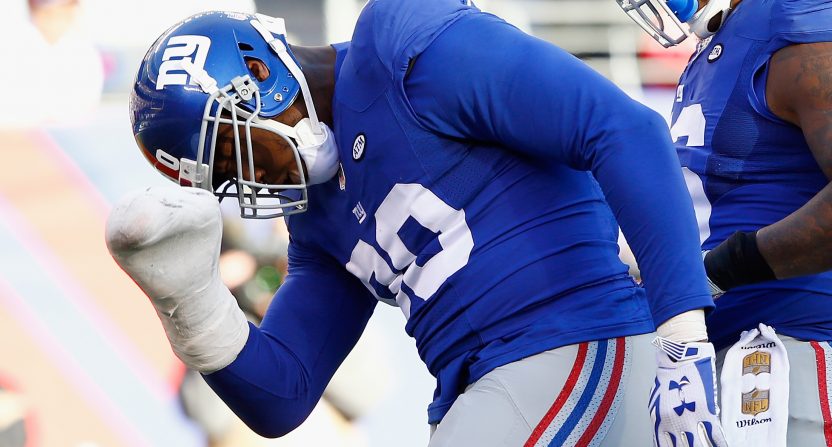One of the most controversial “scoops” in recent journalism history took place in July 2015 when Adam Schefter tweeted Jason Pierre-Paul’s hospital records and thereby revealed personal information about the defensive end’s health following a fireworks accident.
“ESPN continues to firmly believe that its reporting about Mr. Pierre-Paul’s July 2015 injury, including the use of a medical chart that definitively described the seriousness of the injury and resulting treatment, was both newsworthy and journalistically appropriate. Despite their different points of view, the parties have agreed to amicably resolve their dispute rather than continue their litigation.”
The original lawsuit that Pierre-Paul brought against Schefter and ESPN acknowledged that the repoter didn’t violate the Health Insurance Portability and Accountability Act but nonetheless displayed, “blatant disregard for the private and confidential nature of plaintiff’s medical records, all so Schefter could show the world that he had ‘supporting proof’ of a surgical procedure.”
The case was in federal court this past March, where the two sides were fighting over the statutes Schefter’s tweet possibly violated.
This case presented some previously untapped moral quandaries. As insiders across various sports try to get the quickest and most accurate information out to the masses, where is the line for what is acceptable? Can an athlete’s medical records really be of concern to the greater public?
For now, ESPN, Schefter and Pierre-Paul appear to be moving on somewhat amicably.

